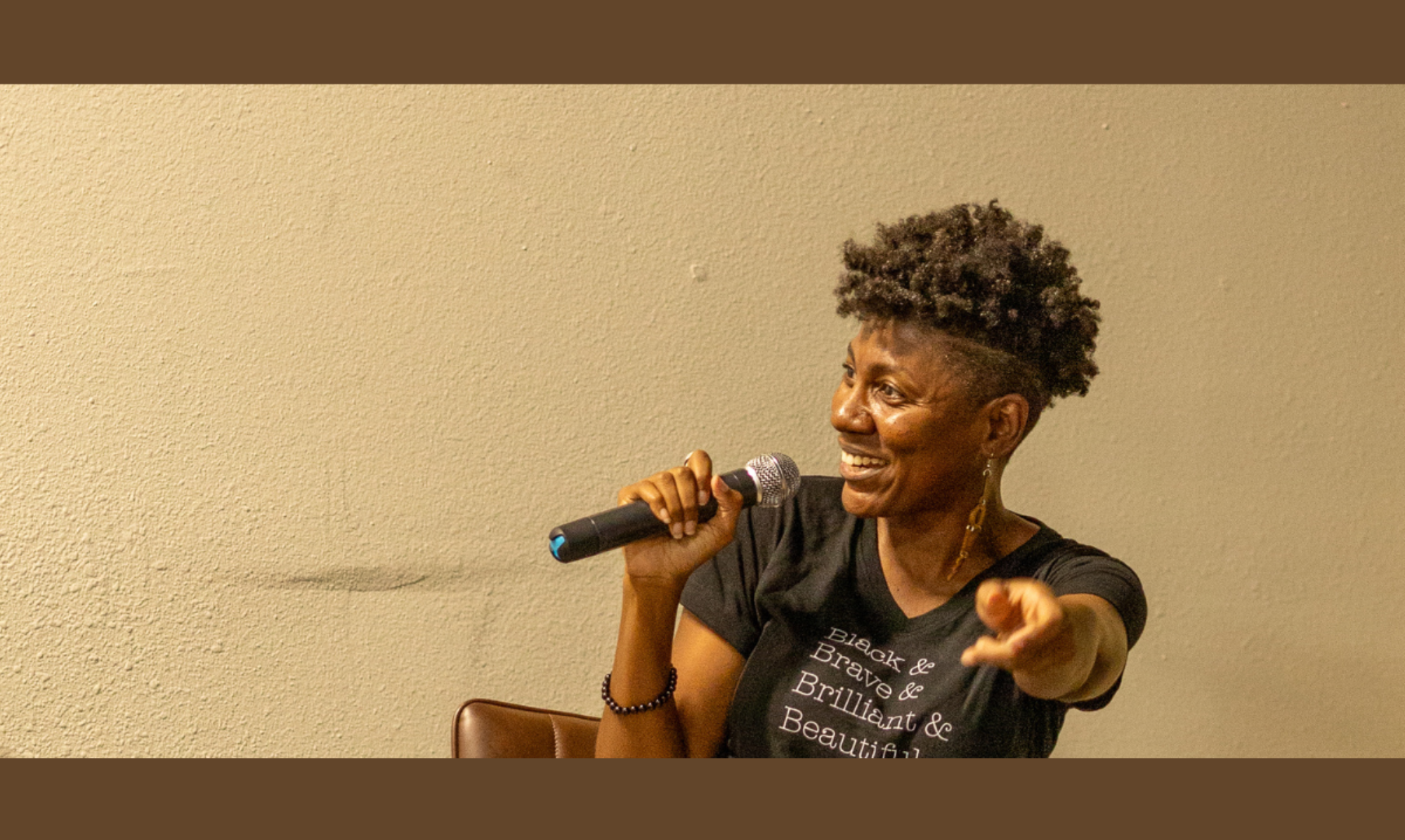The “bald-headed” jokes in Wakanda Forever ruined the movie for me. I immediately cringed and rolled my eyes early in the film when M’Baku calls General Okoye a “bald-headed demon.” I immediately thought, Yep, I can definitely see a Black man writing that line and directing that scene. It was the only line in the film that elicited an audible laugh from the white guy sitting on my row, which speaks to the ways Black humor by Black men in particular panders to the white male gaze by using dark skinned Black Women for their punchlines.
But that terrible line wasn’t enough for them. They created an extended dialogue later in the scene where Okoye and Shuri find the black girl scientist at MIT. We see one Black woman look at another Black woman in disgust and say “You need to be mindful of how your look, with that ash on your head.” And it was meant to be another cheap joke about a dark skinned Black woman’s looks and her physical appearance. Scenes like these implicitly teach that our looks are something to be self-conscious or anxious about or ashamed of.
This movie reminded me that dark skinned Black Women can’t count on being safe even in Black spaces. Even in a movie supposedly celebrating Black people and Black culture, we get a double dose of one of the most played out attacks on Black Women. It reminded me that the Black male gaze is not inherently safe and far too often hostile for dark-skinned Black women.
And what really shines through the lens of colorism for me is the contrast between the world’s response when Kris Rock merely alluded to Jada Pinket’s bald head with a J I Jane reference. Though I denounced his joke and all others like it after the Oscars, what he said was not as negative or demeaning as what’s said in Wakanda Forever. And yet contrast allll the posts, memes, backlash, and think pieces in support of the petite light skinned actress. Versus the silence in response to the same issue for a dark skinned actress. Most folks didn’t even notice or bat an eye during those scenes. Perhaps we’re so conditioned and desensitized to hair jokes and to seeing dark-skinned women as punchlines.
Many people defended Will Smith for slapping someone in defense of a Black woman. But like I originally said after the Oscars, to quote myself: “I don’t see [the slap] as a moment of redemption for ALL Black women. Cus colorism, classism, sizeism [and featurism] have repeatedly shown most of us that ain’t NOBODY sticking their necks out to defend US.”
So many dark skinned girls and women have specifically looked to Danai Gurira and her role as Okoye for affirming representations of ourselves. So the scenes I’m talking about felt like a slap in the face to me and all dark skinned women who endure not just “bald-headed” jokes but all the myriad other degrading shots at our physical appearance. I was extremely hurt and disappointed by those scenes but sadly I wasn’t surprised. Part of my sadness is in knowing that those scenes will continue on spreading harmful narratives as they are etched into the Marvel cinematic universe for generations to come. And part of my sadness comes from the fact that this movie was supposed to be an opportunity for us to get free of that. If Wakanda Forever is supposed to represent the best of Black representation in Hollywood and even it can’t shake off this particular form of misogynoir, then what are we doing???
Stop using dark-skinned Black Women as comic relief.
If you’re interested in my speaking, training, or consulting services, please contact me here.
P.S. 2 things make a coincidence. 3 things are a SIGN. Since seeing the movie on Monday evening, I had 3 distinct moments on Tuesday where I hit my hand, stubbed my toe, and dinged my elbow. I learned this can be a manifestation of repressed anger and frustration. I was consciously aware that I felt angry and frustrated about the film and the context surrounding it. So I wrote this around 2:00am Hawaii Time because it wouldn’t let me sleep. My body was alerting me and inviting me to consciously and intentionally channel my anger and frustration in a healthier way, rather than turn it inward on myself. This is the story of Mars Rx in my first house. So I’m writing this as a collective teachable moment about colorism hairism and misogynoir. And I’m writing this to save and to heal myself.

